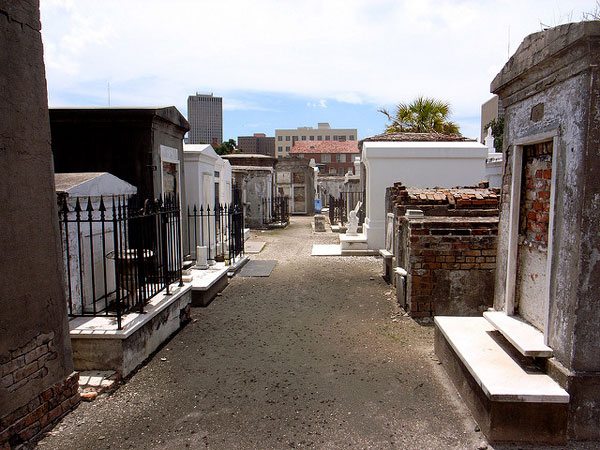
April 19, 2018; Mother Jones
As Olivia Exstrum explains in Mother Jones, a bill currently under consideration in the Louisiana House would “increase the amount of money allocated to the state’s public defender offices by the Louisiana Public Defender Board, their umbrella organization. The board would be required to set aside 70 percent of its budget for local offices, up from 65 percent. The change would mean a $1.7 million increase in funding for public defenders.”
Louisiana’s public defenders have long been underfunded. As NPQ noted in 2015, the average time spent by a New Orleans public defender on an individual’s case is seven minutes. Exstrum points out that according to a 2016 report released by the board, public defender caseloads average twice the recommended state limit. (We’re not sure if 14 minutes per client would be sufficient, but no matter). In 2016, the American Civil Liberties Union filed a class-action lawsuit on behalf of inmates against the Public Defender Board and the Orleans Parish office, claiming the refusal of the office to accept new cases violated inmates’ constitutional right to counsel.
Making matters worse is that the funding mechanism on which Louisiana’s public defender system depends relies on the collection of fines from traffic and other violations. Not only does this mean that funding can fluctuate widely depending on conviction rates, but as Jay Dixon, the chief executive of the Louisiana Public Defender Board, noted two years ago, the funding mechanism creates an ironic situation where “Our revenue is partially dependent on our losing.”
The situation of public defenders in Louisiana has seen other absurdities, including charges that public defenders were subverting the death penalty in Louisiana by successfully defending their clients—i.e., doing their job. The lack of funds has been so severe that two years ago, the city of New Orleans ran a $50,000 crowdfunding campaign in an admittedly largely symbolic effort to reduce the funding shortfall.
Adding $1.7 million to the budget, of course, will change none of this in a state of over 4.6 million people, but every bit helps, right? Well, even that is not necessarily so, because it turns out the fund being tapped to raise the public defender budget would take away funds currently used to support nonprofit legal aid organizations. In other words, the small gain that the public defenders’ offices get would likely be at the expense of nonprofits like “Innocence Project New Orleans, which works to overturn wrongful convictions, and the Louisiana Center for Children’s Rights, which provides public defense for juveniles.”
“I certainly don’t think it’s the solution,” says Derwyn Bunton, chief district defender of Orleans Public Defenders. “It’s going to be inefficient, unfair, and unjust.”
Sign up for our free newsletters
Subscribe to NPQ's newsletters to have our top stories delivered directly to your inbox.
By signing up, you agree to our privacy policy and terms of use, and to receive messages from NPQ and our partners.
Louisiana has the nation’s highest rate of incarceration. It also has the nation’s second-highest exoneration rate. Cutting funding to Innocence Project New Orleans might reasonably be expected to slow down exonerations and leave even more innocent people behind bars.
These nonprofits, Exstrum notes, also “help public defenders shoulder the burden of massive caseloads by taking on cases that are too costly or complex for them to handle.” Exstrum adds that, “Legal groups worry that the proposal, which they say is likely to pass, would simply move money from legal aid groups to the public defenders instead of actually increasing resources for public defense.” State Public Defender Jay Dixon, a member of the Public Defender Board, concurs that the bill would almost certainly cut support for nonprofit legal aid groups.
Emily Maw, director of the Innocence Project New Orleans, notes that her organization receives $360,000 annually from the Public Defender Board, a little over a third of its total budget.
While the funding shortfall for public defenders in Louisiana is worse than most states, the state’s situation is hardly unique. A 2007 Justice Department report found that 73 percent of local public defense systems were operating above capacity. More recently, in 2013, documentarian Dawn Porter produced a film called Gideon’s Army that profiles the stories of three public defenders who represent their clients in a country where the constitutional guarantee established in the 1963 Gideon v. Wainwright US Supreme Court case of the right of criminal defendants to publicly provided legal representation is routinely shortchanged. The result, notes Porter is a “two-tiered criminal justice system. One for haves, one for have-nots.”
The situation of public defenders and nonprofits being set against each other over crumbs in Louisiana is dismaying, albeit predictable. Meanwhile, elsewhere public money flows. For example, the nonprofit Good Jobs First points out that Louisiana awards “nearly $1 billion a year in industrial property tax exemptions for existing facilities and is willing to spend big to attract new ones.” In 2015, a local television station ran a nine-part series on such practices titled Easy Money.
In New Orleans’ Times-Picayune, bill author Sherman Mack (R-Albany) says that he has proposed the bill to address the backlog in public defender offices. But Dixon says the bill, by cutting nonprofit support, would “cripple” the already limited resources public defenders have.
Maw adds that the bill would “do nothing to solve the unsustainable, unpredictable, and grossly disparate funding the public defenders get.” She adds, “It will only put at risk programs that are safety nets for either the most serious charges (capital cases), or the most vulnerable citizens (children), or people who have been completely disserved by Louisiana’s lack of care.”—Steve Dubb













